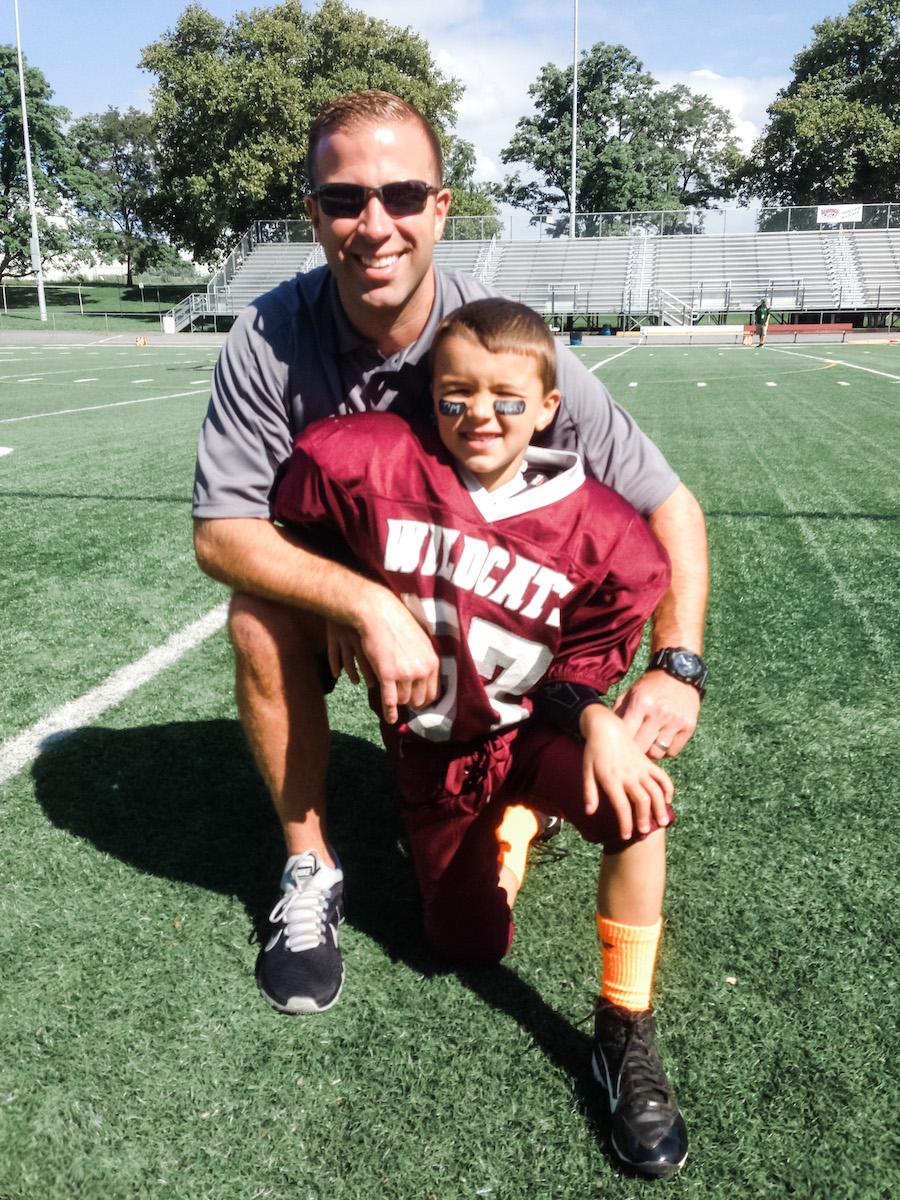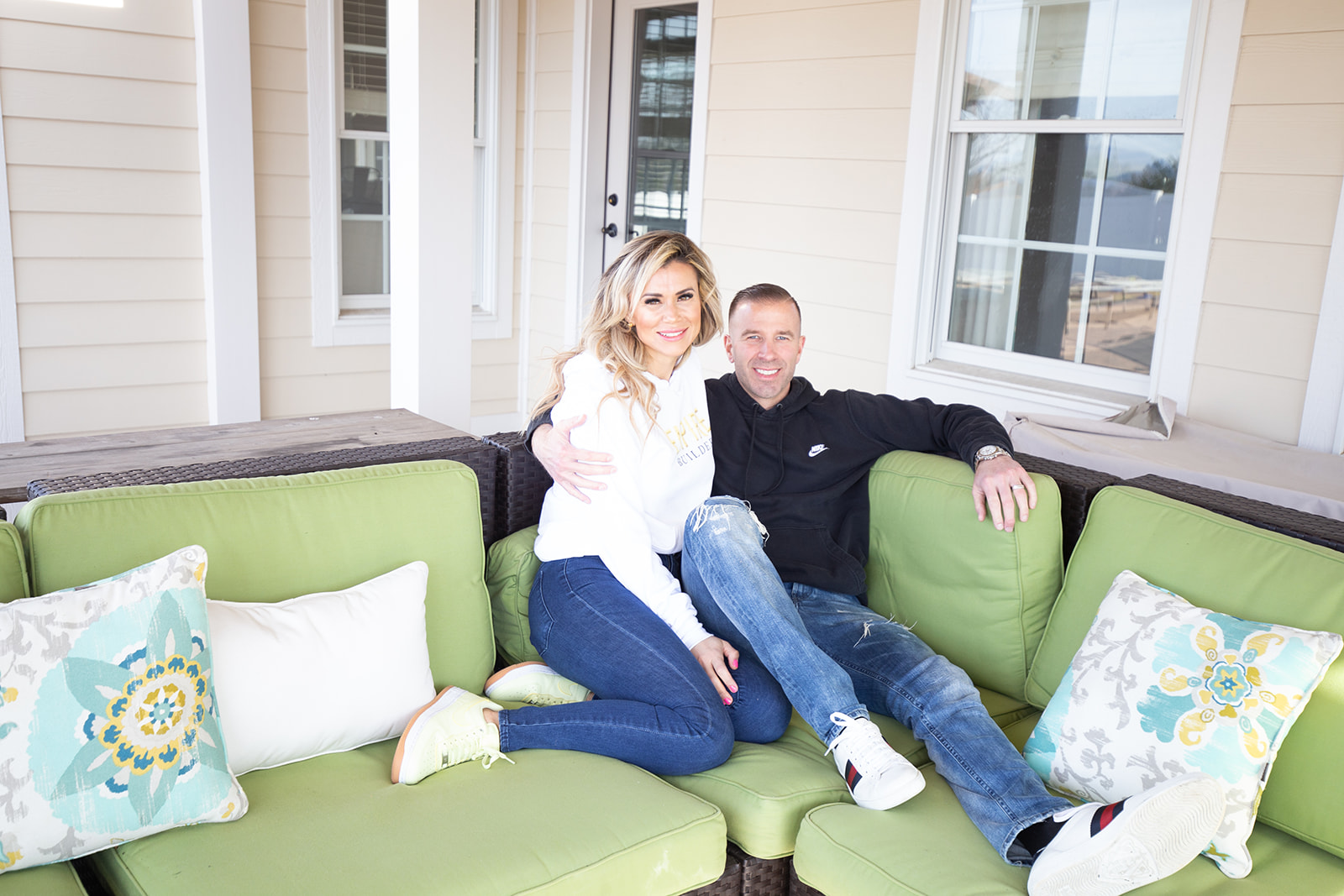Years ago, a very dear friend of mine and I were discussing the many challenges that come along with modern day parenting. She said “I’m just trying to raise good humans,” and it has stuck with me ever since.
My son Frank doesn’t love sports the way my husband did. He “likes” them well enough but he doesn’t have the same drive, persistence or competitive nature that my husband does. He likes more free play, video games and has a very creative mind. He’s more like me. He’s more sensitive; he’s more aware of other’s feelings and kind of lives with his head in the clouds.
Rob struggled for years with this. When Frank was in kindergarten, Rob signed him up to play youth football. Rob was a great football player in high school. He assumed Frank would want to follow in his footsteps. We are a “football family” more than any other sport. Plus, there’s something to be said about utilizing team sports as a way of how to make your child successful in life.

There Were Two Problems with Starting Youth Sports
First was that Frank was – and is – immature for his age. He probably just wasn’t ready or old enough for youth football in kindergarten or sports for kids in general.
Rob grew up and matured fast as a kid living with his dad. His dad demanded it. On the other hand, when Rob had a young son of his own, he was also working around the clock. If he’d been home more when Frank was young, Rob might’ve been more demanding of him. After all, that’s what he learned from his own father. But since Frank was always home with me, I probably babied him, I admit it.
The second problem was Rob’s expectations about Frank playing youth football. He assumed Frank would love the game the same way he did.
I remember being at Frank’s very first scrimmage. Int terms of the best age to start tackle football, we may have been a little ambitious. Our son was five and lined up against a kid that easily stood a foot taller than him, and outweighed him by 25 pounds. The kid laid him out and rang his bell. Frank cried, I started to cry, and Rob got mad that we were both crying.
By the way, at this age, a kid cried every play. God bless those coaches.

The problem clearly wasn’t Frank. It was Rob and his expectations that his son was going to love football as much as he did.
After years of raising children, Rob has recognized that Frank is an individual person with his own interests, likes and dislikes, strengths and weaknesses. As his parents, we now guide him down the path that’s right for Frank. And it’s not like our child doesn’t try in sports or dislike them, he actually plays football again (at his request) and really loves it. (But it would be OK if he didn’t, too!)
Instilling the Right Moral Values Above All Else
Our job as the parents of three kids is to “raise good humans.” We teach Alexis, Gianna and Frank to respect others regardless of their skin color, religion, sexual orientation, disabilities or socioeconomic background. We teach them to treat others the way they want to be treated (the golden rule). We teach them to respect their coaches, teachers and their elders. We teach them to always do their best and that the work you put in will determine your success.
These are our family values. They are what’s most important. Whether or not Frank loves football is not a critical issue.
It’s our Job to Learn How to Raise Good Kids
Too many parents today are hung up on fulfilling the dreams they want for their children, while completely ignoring what their child feels is their calling. Parents need to redirect that energy into recognizing and acknowledging their children’s strengths. When you follow your child’s lead and support their very spirit, you’ll see them blossom. Sometimes it takes time for them to figure it out, but the more you keep your opinions and dreams for them out of the picture, the louder you’ll hear their calling.

Raising children is the hardest job we can take on as adults. As a mother who now has an almost 24-year-old daughter, I can speak from experience. The most effective parenting is one where you guide them with your family’s values (raising good humans) while allowing them to make their own choices and follow the natural talents and strengths that are given to each and every child.
When you parent from this perspective, your children will stumble and sometimes they’ll “learn the hard way,” but when you decide to let their interests lead them, they’ll be doing it on their terms. Sometimes you have to let them fail and when they succeed, you’ll see them grow.
Raise good humans, parents. The rest is the nuts and bolts of life.


